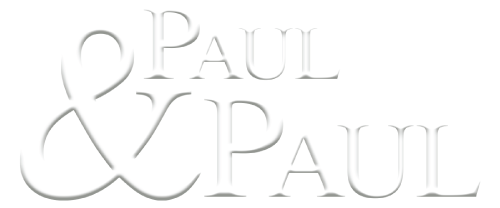Understanding What Technology Can be Patented, Explained By Our Intellectual Property Lawyers in Philadelphia, PA
A patent grants a person or business an intellectual right to an invention. Historically, inventions have been tangible objects such as everything from a new kitchen appliance to a dog pooper scooper. Technological advancements in digital form are changing the face of patents. This is mainly driven by tech companies such as Apple, Alphabet (Google), Qualcomm, Intel, LG Electronics, Samsung, and IBM, all of who make up the companies with the most patents filed and granted each year. Many of these patents are on new, cutting-edge technology which is often intangible, such as software, computer programs, libraries, user interfaces, code or proprietary algorithms.
Despite many of these companies being household names and being around for a long time, there are still many uncertainties with what technology can be patented. This is partially because the applicable law has lagged behind technological advancements. But this is also due to the rapid expansion where competitors fight for every advantage they can get in the tech realm. There is often no precedent for the digital invention, making it a matter of first impression before the patent office.
This is why it is essential to always consult with an intellectual property attorney in Philadelphia, PA, who understands both the law, technology, and the gaps in the law which need to be bridged for a patent application to be granted. With over 170 years of combined experience, including being at the forefront of technology patents and advancements throughout the United States and the rest of the world, the skilled patent lawyers at Paul & Paul are the experienced legal team that a technology inventor needs. We have the knowledge and resources necessary to guide you through the process to ensure your new invention receives the proper protections under the law.
What Can be Patented and What Cannot Be Patented
There are three general types of patents known as design patents (protecting a unique product design), plant patents (protecting new or hybrid plants), and utility patents (for machines, chemicals, processes, and other related objects).
Under these three types of patents, inventions relating to a process or method of creating a material or product, a machine, manufacturing, a composition, improvements, or unique designs can all be patented.
However, non-patentable inventions or processes include things such as discoveries in science or math, informative presentations, medical procedures (veterinary included), rules or methods for performing cognitive tasks, nonfunctioning products (art), ideas, and similar applications.
What Technology Can be Patented?
Our patent attorneys know that the patent process can quickly become more complicated for both the applicant (inventor) and the patent office (examiner) when it comes to technology and digitally-based inventions. In general, some of the most obvious technologies that can be patented include tangible objects that fit squarely in a utility or design patent. This could include new CPU chips, electronic sensors, or other tangible but still technologically advanced products.
Where things get murkier are with intangible objects relating to technological advancements. Some technological advancements in the digital realm which can be patented include the following:
● Software programs (i.e., word processing programs)
● Operating systems (i.e., Windows, Linux, or Mac IOS)
● Technology coding that is a part of a more significant invention like software or operating systems
● Algorithms used for a specific purpose or function (i.e., search engine algorithms)
● User interfaces
● Management systems
● Computer security or encryption
● Databases or storage programs
● Networking systems or devices, and
● Other digital advancements.
What Technology Cannot Be Patented?
Many other types of technological advancements cannot be patented under the law. These may appear to overlap with what can be patented, which highlights the importance of retaining an experienced intellectual property lawyer like one of our patent lawyers at Paul & Paul.
Some common examples of what cannot be patented include the following:
● Source code or lines of code that are not part of a program, system, or invention
● Abstract ideas
● Algorithms alone
● Mathematical methods or processes to be used by computers or digital technologies
● An idea for a computer program or technology function/method
● Business methods
● Products/digital solutions which simply identify and describe a problem, announce purely functional steps to solve the problem, and use standard computer operation to perform the solving steps
Have a New Technology You Are Looking to Patent? We Can Help
If you are unsure whether your new technology or invention can be patented, or if you know you need a patent but are worried about the application process, call the Philadelphia technology patent lawyers at Paul & Paul. We have the knowledge and resources necessary to evaluate your invention and determine whether it qualifies for a patent, how to obtain the patent, and can prove its eligibility to the patent office or court of law. Learn how we can help you by dialing (215) 568-4900 or using our convenient and easy-to-use contact us box available here.
